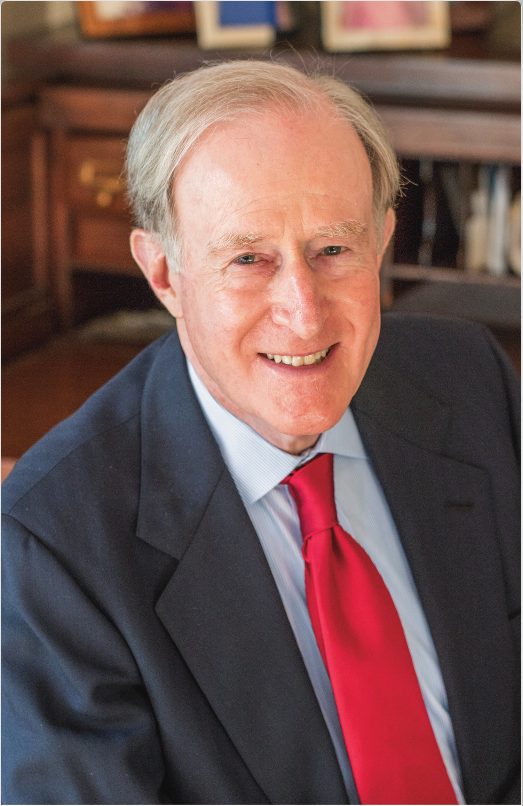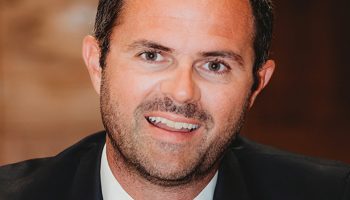MAX ZAMBRANO – STAFF WRITER

In 1972, Benjamin Friedman walked into Harvard University for his first year of teaching. This upcoming school year, he will walk into Harvard again for his 50th year of teaching, now as the William Joseph Maier Professor of Political Economy.
He’s spent even more time at Harvard, though — he received his bachelor’s, master’s and doctoral degrees in economics there.
“I am very aware of what an extraordinary privilege it has been to spend my entire academic career at an institution where I have such amazingly talented and energetic colleagues,” Friedman said, “and also such a splendid group of interesting, energetic and also very talented students.”
In his time, he’s written over a dozen books and more than 150 articles in professional journals. Of his writings, he’s published a few books for the general public, including Religion and the Rise of Capitalism, released this past January.
Friedman will present his lecture based on and named after this book at 1 p.m. Tuesday, Aug. 10 in the Amphitheater. It is part of Week Seven’s Interfaith Lecture Series themed “Creating an Economy that Works for All.”
Over the last half-century at Harvard, Friedman said he’s noticed a positive shift in the types of students who come to the university.
“The students are enormously more energetic and talented than they were 50 years ago,” he said, referring especially to undergraduates.
He is not 100% sure why that is the case, but he has a few theories. One of those is that students are simply better today than they were before.
Another possibility is Harvard’s more diverse pool of students, he said. When he was an undergraduate student, he said most students came from schools in New York or New England, particularly prep schools.
“That percentage is way down, and it’s matched by an increase in the number of people from elsewhere in the United States and elsewhere in the world,” he said. “I think the reach of the college in terms of the kinds of people it attracts is much greater now.”
Moreover, Harvard has a gigantic pool of applicants with little room to swim. He estimated around 50,000 students apply each year, and only around 1,650 are accepted, meaning an average of around 3% of applicants are accepted.
Friedman’s two other books for a general audience are The Moral Consequences of Economic Growth (2005) and Day of Reckoning: The Consequences of American Economic Policy Under Reagan and After (1988).
His 2021 book is a history of ideas, he said, whereas his last book was about the interaction of economics with social and political history.
“Importantly, in this (new) book, it turned out that the role of religious thinking was not just powerful, but central in the emergence and subsequent evolution of economic ideas that I was exploring,” he said.
Although he mentioned religion and religious thinking in his previous books, it did not have as much of a spotlight as it does in this newest one.
Additionally, he covers a wider range of history in his new book, exploring the timeline from the Bible through the New Testament, to the early church fathers, the Reformation, the evolution of religious history, the 18th century and to the present day, he said. In his last book, his earliest data was from the early 1800s, he said.
“The book comes right up so the last chapter very frontally addresses the role of religious thinking in our current day debate on economics and economic policy in the political sphere in the United States,” he said.
Friedman did not get data from the 2020 election when he was finishing the book, but does have data up to the 2016 election, he said.
For his lecture, he wants to highlight religion’s influence on the economy.
“The unifying theme is that religious thinking has been a very powerful influence on the early development of and subsequent evolution of economic thinking, right from the beginning of modern economics,” he said.
The common narrative, he said, was modern, Western economics is based on the Enlightenment, and that he agreed.
“But then people normally go on from there to conclude that because the Enlightenment was not about religion. … If anything the Enlightenment is seen as a movement away from religion, therefore people conclude that the development of economics in our modern sense has nothing to do with religion,” he said.
Friedman hopes he disproved this idea in his book, and will argue why in today’s lecture.
Looking at modern day, he still sees a significant religious influence on the economy, especially in the United States, and he will also discuss that.
“Religious thinking has been and continues to be very important,” he said, “even in this realm where it’s normally not taken to be important.”




